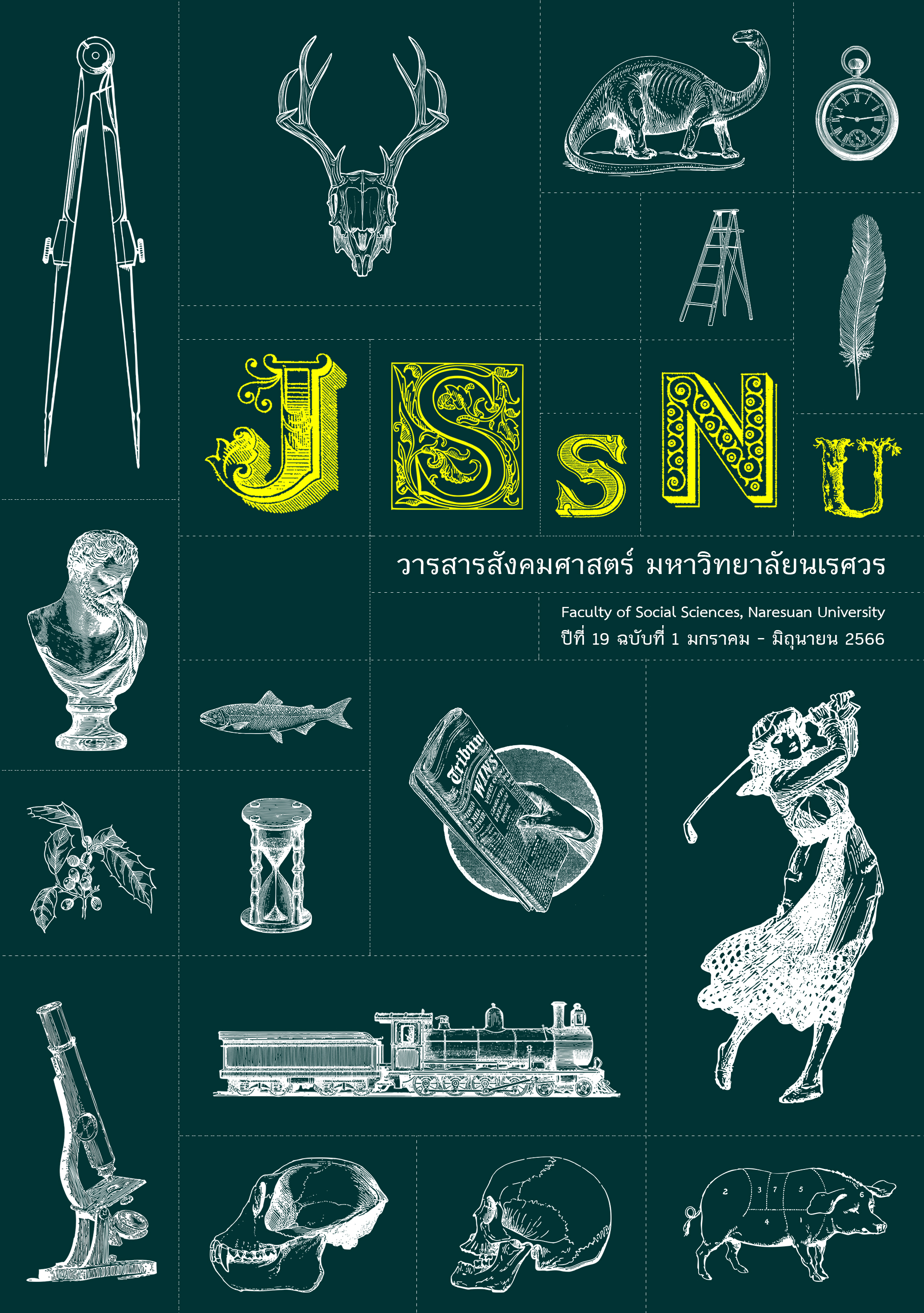Contemporary Leftist Debates on Late Capitalism: Capitalism with Many Adjectives
Main Article Content
Abstract
Since the 2010s, leftist scholars have revived, reviewed, and re-interpreted criticisms against capitalism. Countless academic contributions have been made in order to better our understanding of the so-called late capitalism. In their findings, these critical works analyze distinctive and novel forms of the 21st century capitalism. On the one hand, capitalism, whether early or late one, still shares similar fundamental characteristics. It refers to a type of society in which capital circulation and accumulation are dominant forces determining every aspect of our lives. Causing contradiction and inequality, capitalism is thus inherent in crisis. On the other hand, capitalism has been adapting, expropriating new spheres, and intensifying its exploitative features. This article explores current leftist debates on late capitalism. Remarkably, capitalism has been adjectivized in different fashions which concerns contemporary global politics, for instance, communicative capitalism, cannibal capitalism, and fossil capitalism. As these thinkers have proposed, capitalism with various adjectives has achieved in creating new opportunities for capitalist class, transnational corporations, and political elites to “free-ride” and “expropriate” our social life, care, and natural resources. Although this late capitalism is striving to accumulate more and keep widening the gap, it sabotages its own pre-condition, self-destabilizes, and will eventually self-cannibalize in the near future.
Downloads
Article Details

This work is licensed under a Creative Commons Attribution-NonCommercial-NoDerivatives 4.0 International License.
References
Arruzza, C., Bhattacharya, T., & Fraser, C. (2019). Feminism for the 99%: A manifesto. London: Verso.
Bhattacharya, T. (2014). Explaining gender violence in the neoliberal era. Retrieved September 10, 2022, from https://isreview.org/issue/91/explaining-gender-violence-neoliberal-era/
Chan, J., Selden, M., & Ngai, P. (2020). Dying for an iPhone. Chicago: Haymarket Books.
Crary, J. (2022). Scorched earth: Beyond the digital age to a post-capitalist world. London: Verso.
Dean, J. (2013, June 29). The limits of the web in an age of communicative capitalism [Video file]. Retrieved from https://www.youtube.com/watch?v=Ly_uN3zbQSU&t=1686s
Dean, J. (2014). Communicative capitalism and class struggle. Spheres, 1-16. doi: https://doi.org/10.25969/mediarep/3818
Dean, J. (2020, May 12). Neofeudalism: The end of capitalism? Retrieved December 28, 2022, from https://lareviewofbooks.org/article/neofeudalism-the-end-of-capitalism/
Engels, F. (2010). The origin of family, private property and the state. London: Penguin.
Fraser, N. (2022). Cannibal capitalism: How our system is devouring democracy, care, and the planet-and what we can do about it. New York: Verso.
Harvey, D. (2007). A brief history of neoliberalism. Oxford: Oxford University Press.
Harvey, D. (2014). Seventeen contradictions and the end of capitalism. Oxford: Oxford University Press.
Horvat, S. (2019). Poetry from the future: Why a global liberation movement is our civilisation’s last chance. London: Allen Lane.
Ilaw-freedom. (2022, July 17). Introduction to pegasus: The world’s most lethal cyber weapon and the state’s instrument to do data-mining from the dissents. Retrieved November 10, 2022, from https://freedom.ilaw.or.th/node/1082 [in Thai].
Kaempf, S. (2018). Digital media. In R. Bleiker (Ed.), Visual global politics (pp. 99-110). London: Routledge.
Kara, S. (2018, October 12). Is your phone tainted by the misery of the 35,000 children in Congo’s mines? The Guardian. Retrieved from https://www.theguardian.com/global-development/2018/oct/12/phone-misery-children-congo-cobalt-mines-drc
Klein, N. (2021). How to change everything: The young human’s guide to protecting the planet and each other. New York: Atheneum Books for Young Readers.
Malm, A. (2016). Fossil capital the rise of steam power and the roots of global warming. New York: Verso.
Malm, A. (2021). How to blow up a pipeline: Learning to fight in a world on fire. New York: Verso.
Mandel, E. (1976). Late capitalism. London: Verso Classics.
Marx, K., & Engels, F. (1978). Manifesto of the communist party. In R. Tucker (Ed.), The Marx-Engels reader (pp. 473-500). New York: W. W. Norton & Company.
Marx, P. (2020, October 19). Only class war can stop climate change. Jacobin. Retrieved from https://www.jacobinmag.com/2020/10/class-war-climate-change-overpopulation-carbon
Nixon, R. (2011). Slow violence and the environmentalism of the poor. Cambridge: Harvard University Press.
Pham, M. H. T. (2021). A world without sweatshops: Abolition not reform. Retrieved December 28, 2022, from https://papers.ssrn.com/sol3/papers.cfm?abstract_id=3860253
Phuaphansawat, K. (2018, April 30). Women, class, and Karl Marx. Prachatai. Retrieved from prachatai.com/journal/2018/04/76677 [in Thai].
Raha, N. (2021). A queer marxist transfeminism: Queer and trans social reproduction. In J. J. Gleeson & E. O’Rourke (Eds.), Transgender Marxism (pp. 85 - 115). London: Pluto Press.
Ritzer, G., & Dean, P. (2019). Globalization: The essentials. London: Wiley Blackwell.
Robinson, W. (2022). Global civil war: Capitalism post-pandemic. Oakland: PM Press.
Sinpeng, A. (2021). Hashtag activism: Social media and the #FreeYouth protests in Thailand. Critical Asian Studies, 53(2), 192-205.
Srnicek, N. (2017). Platform capitalism. Cambridge: Polity Press.
Varoufakis, Y. (2021). Techno-feudalism is taking over. Project Syndicate. Retrieved from https://www.project-syndicate.org/commentary/techno-feudalism-replacing-market-capitalism-by-yanis-varoufakis-2021-06?barrier=accesspaylog
Žižek, S. (2010). How to begin from the beginning. In S. Žižek & C. Douzinas (Eds.), The idea of communism (pp. 209 - 226). New York: Verso.
Žižek, S. (2016). Refugees, terror and other troubles with the neighbors: Against the double blackmail. New York: Melville House.
Zuboff, S. (2019). The age of surveillance capitalism: The fight for a human future at the new frontier of power. London: Profile Books.


